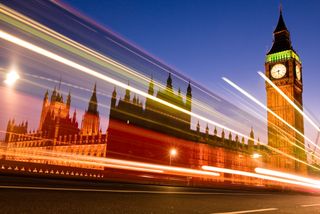GDS tasked with helping local government go digital
Whitehall’s digital team will work with council “partners” to transform public services, Budget confirms

The Government Digital Service (GDS), Whitehall's digital taskforce, will start working with local government to digitise public services.
The long-debated move was confirmed in Chancellor George Osborne's Budget for 2015, giving the coding team the power to shape the future of council public services.
"Digital ambition will extend beyond central government and arms-length bodies, to consider local services," the Budget Book read.
"HM Treasury, the Department for Communities and Local Government and the GDS will collaborate with partners in local government, as the sector develops a set of proposals that will enable more customer-focused, digitally-enabled and efficient local services in time to inform future budget allocations."
However, the Local Government Association (LGA) said it was imperative that councils are involved in their own digital development if they're to succeed.
"Councils are on the frontline of public services and help residents navigate and access a range of vital public services," said Peter Fleming, chairman of the LGA's Improvement and Innovation Board.
"Any commitment to greater digital collaboration to enable the public sector to join up more effectively around residents will help our communities," he said. "It is absolutely vital that we all work together and share our expertise and understanding of our customers."
Get the ITPro. daily newsletter
Receive our latest news, industry updates, featured resources and more. Sign up today to receive our FREE report on AI cyber crime & security - newly updated for 2024.
The association called on central government to share data with councils in order to help them develop digital services for health and social care.
Socitm, a representative body for local authority CIOs, was another to underline the point that councils must remain involved in their digital strategies.
President Nick Roberts said in a statement: "Socitm's research demonstrates that councils have a wealth of experience in understanding and addressing their citizen's needs for digital public services in their localities.
"We welcome the opportunity to work with GDS and other key stakeholders, such as the LGA and DCLG, in understanding how best to support and enable councils to collaborate with citizens and local communities on the production of digitally-reformed services in priority areas such as health and social care."
The news comes after Labour's Digital Government Review proposed that GDS work with local councils back in November, estimating savings of more than 50 million.
And the Opposition's shadow Cabinet Office minister, Chi Onwurah, welcomed the decision, but warned Whitehall that local government is already driving its own digital strategies.
She wrote on Twitter: "Glad Govt finally conceding GDS should work with local gov as we proposed. But they appear unaware localgov already has digital ambitions & appear focused on cost savings not empowerment & improved services. Need partnership of equals."
TechMarketView analyst Georgina O'Toole agreed that councils have been driving their own change, partly due to budget cuts, but said an official agenda set by GDS with its partners could improve digital innovation across the public sector.
"Arguably local government has advanced further in its digital transformation and channel shift' agenda than Whitehall," she said. "Budget cuts have pushed them in that direction.
"But this may herald a more consistent approach with more common standards and sharing in order for even more cuts to be achievable."
The GDS has a track record of delivering fast-paced change in central government, and has so far moved all government websites to one platform, Gov.uk, and is now working to digitise 25 public services.
It's also responsible for developing a new IT model referred to as Government-as-a-Platform (GaaP), which could do away with Big IT procurement in favour of creating systems in-house.
Trade body TechUK said the GDS's increased scope would only help speed up public sector innovation. "Today's announcement has put further momentum behind the digitalisation of public services, both at a central and local level," CEO Julian David said. "This will be vital for meeting the Chancellor's targets for efficiency savings as well as building world-class public services around the needs of the citizen."




